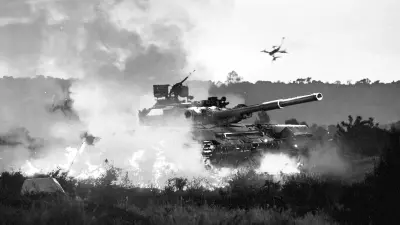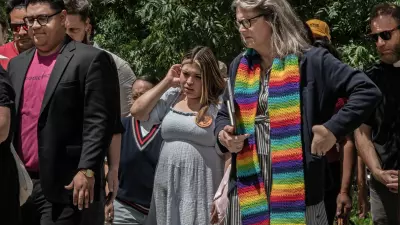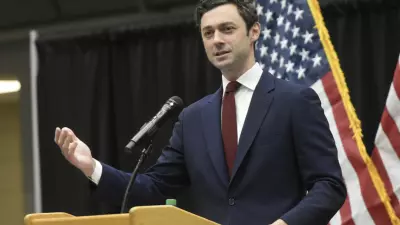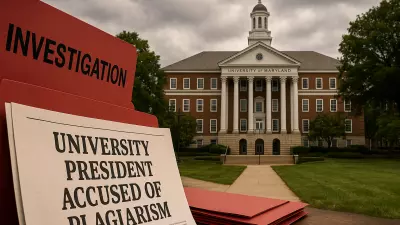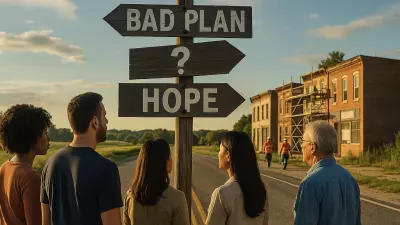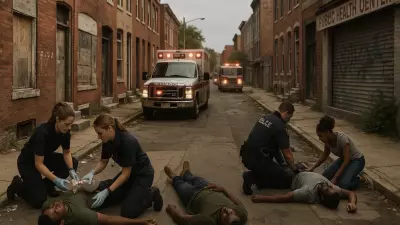The history of Ukraine is a continuous story of how no one believed in us — yet we prevailed, writes Kateryna Zarembo.

[Editor’s Note: The following is from remarks by Kateryna Zarembo, an analyst at the New Europe Center and a paramedic with the Hospitallers Medical Battalion, delivered at the Lviv Media Forum (LMF) 2025 — one of the largest media conferences in Central and Eastern Europe.]
“If there’s shelling, we jump out and run to the tree line — that’s where we can hide,” the crew commander says. I nod silently. It’s 3 a.m.
Just half an hour ago, I was struggling to stay awake. Now, my mind is crystal clear from adrenaline. We’re heading out to evacuate the wounded. The Russians track medevac vehicles. International humanitarian law, including the Geneva Conventions, prohibits attacks on medics, but Russia stopped caring about international law long ago.
Medevac vehicles and stabilization points are their priority targets. In doing so, they not only kill the wounded, but also condemn the next casualties to death, because there will be no one to help them. The armored vehicle transferring the wounded to us has already been targeted several times.
Even though we’re heading toward the enemy, fear serves no purpose. It drains strength and blurs focus. You can either be afraid — or you can act.
This year’s Media Forum’s motto is “Calling Things by Their Names.” I see it as an invitation to speak frankly, without fear or self-censorship.
I believe that after 12 years of Russia’s war against Ukraine, no one needs an explanation anymore: this is not just a war for Ukraine’s independence and freedom — it’s a war for the entire free world. It’s a war of democracy against dictatorship. And that means it’s your war, too.
This war continues, even if you don’t see it. Shelling of cities that are “conventionally” in the rear continues. Casualties of shelling in frontline areas don’t even make the news. Any peace treaty, if one is signed, will be temporary — because Russia is not interested in peace. The war will continue as long as Russia exists in its current form. War is its very essence. It’s a country that has waged war across the world: Chechnya, Georgia, Moldova, Syria… It has committed war crimes in Mali and Libya. It is a country that believes it can act with impunity.
Recently, the body of Ukrainian journalist Viktoriia Roshchyna was returned to Ukraine. She was taken prisoner by Russia in October 2023. She was tortured with electric shocks, had her ribs broken and was fed rotten food. By summer 2024, Viktoriia weighed just 30 kilograms (66 pounds) and could not stand from exhaustion and illness. In the fall of that year, she died in captivity, never making it to the scheduled prisoner exchange. When her body was delivered to Ukraine, pathologists discovered that her brain, eyes, and part of her trachea had been removed. Doctors suspect this was done to conceal the cause of death — likely asphyxiation.
If this is hard for you to listen to, imagine how hard it is to live through. Today, up to 16,000 Ukrainians are being held in Russian captivity.
Right now, at this very moment, they are being tortured. The same tortures I’ve described — or worse. And that’s not all. I haven’t yet spoken about life under occupation — a daily, exhausting ordeal. About the abduction and forced “re-education” of Ukrainian children. About the executions of our POWs right on the battlefield.
This is only part of the inhuman crimes Russia is committing. And it’s still doing it. Right now.
“What can I do?” you will ask. I have a few suggestions.
First: Don’t limit your imagination. The only real limit to what’s possible is the boundary of our imagination. The history of Ukraine is a history of being doubted — and proving people wrong. I’m not just talking about the “Ukraine will fall in three days” mantra Western media repeated before the full-scale invasion. Receiving Patriot air defense systems, ATACMS missiles, F-16s, the halt of Nord Stream 2, the freezing of Russian assets and EU candidate status — just a few years ago, all of this seemed impossible. Forty years ago, even the idea of an independent Ukraine seemed like a pipe dream. Only a handful of dreamers abroad believed in it. I invite you to believe that Ukraine’s de-occupation, Russia’s de-imperialization and disarmament, justice for Russia’s war crimes, crimes against humanity and genocide — are all possible. And where there’s a will, there’s a way.
I can also assure you that Ukraine will keep fighting and defending itself, even if the United States stops supporting us entirely. But if we do it with our partners — even just the “coalition of the willing” — we’ll be unstoppable.
Second: If you feel you’re not doing enough — do more. I don’t necessarily mean going to the front — though for many, even those who aren’t Ukrainian citizens, that may be the right path. I’ve met many foreigners fighting in the ranks of the Ukrainian army, deeply committed to our cause.
I’m speaking primarily about your conscience. It doesn’t lie. You can do enough within the bounds of your abilities and circumstances.
Your conscience will tell you when the moment comes when you can honestly say, “I’m doing everything I can.”
I’ll quote here the journalist Kateryna Kobernyk who once wrote: “Full-scale war has shown that all that talk of ‘put yourself first,’ ‘choose yourself’ — is bullshit. No, the choice still exists. Millions did take care of themselves and their loved ones first. But others took care of the well-being of those people, their future, their lives, their property and their health — those who put the oxygen mask on someone else first. Thanks to their sacrifice, the physical war is still where it is, and thousands or tens of thousands have been able to remain home or flee. Their homes still have value, they are even getting sold. Their aging parents are not in occupation.” Or, as my dear friend, writer Sasha Dovzhyk, put it: “By choosing yourself, you won’t save the world.”
If you live abroad, there’s still so much you can do. It’s not just about supporting Ukraine in the known ways — volunteering, donating and participating in demonstrations — but also, and most importantly, influencing the politics in your country. Vote for leaders who support democracy and the rule of law — not the law of power. Talk to your relatives and neighbors. Explain to them why Russia’s war against Ukraine affects them personally, too.
Third: If there’s something you don’t know how to do — learn it. At the very least, basic combat training is something every citizen of Ukraine and European democracies should go through. Millions of Ukrainians had never made camouflage nets, soldered drones, or understood electronic warfare or radios before. Most of our army consists of former civilians who learned from scratch. If someone had told me a few years ago that I’d be able to give injections, work with blood, or that I wouldn’t fear amputated limbs — I’d never have believed them.
People often tell me, “I could never do that.” Yes, you could — if you believed it was necessary.
There’s only one thing I cannot get used to and never want to: human suffering. It’s within our power to stop it, in Ukraine and elsewhere.
Fourth: As a writer, I have to mention literature. My advice is both simple and difficult: read. Read long texts. In an age of information overload, bots and AI, mass manipulation becomes even easier, especially through short content that stirs up emotions and distracts from analysis. Train your focus. People used to following a narrative are more likely to recognize the lies, manipulation, and inconsistencies that dishonest people exploit.
For us Ukrainians, reading during the war has become an act of resistance. In occupied areas, Ukrainian children secretly study from Ukrainian textbooks.
Recently, the story of a Ukrainian teenager, let’s call her Sofiia, shocked many. After spending 10 years under occupation in Donetsk, she escaped as soon as she turned 18 and could legally travel without an adult. Alongside attending the local school, she secretly studied remotely at a Ukrainian school in Sloviansk. Can you imagine how much mettle it takes for a child to resist in secret for years — under fear, propaganda and repression — without being able to tell anyone, even the closest people? British journalists also recently reported on the world’s most dangerous book club — teens secretly reading Ukrainian literature together in occupied Mariupol.
Russians understand the power of the Ukrainian word. That’s why they deliberately and systematically destroy Ukrainian libraries. As of last year, they had damaged or destroyed nearly 1,000 libraries holding more than 200 million books. That means that the voice of Ukrainian literature must sound even louder. It would be wonderful if each of you left Lviv with a Ukrainian book or bought one in translation. Tell your friends and colleagues about Ukrainian authors or writers from other nations whom Russia tried to silence when they ask you what to read.
Fifth: Be humane and hold on to your empathy — for others and for yourself. Personally, I find this the hardest advice to follow because the temptation to hide in your own bubble is strong. But only the strong in spirit can tell the difference between enemies and opponents. And do be caring.
Evil is possible not just because of those who commit it, but because of the silence and inaction of those who witness it. Good is not an emotion. It’s an action.
The motto of the Hospitallers is “For Every Life.” To me, those are not empty words. It doesn’t matter whether it’s a civilian or soldier, young or old, strong or weak — every life matters. And that’s something we often forget when, in the context of peace, we talk about territories, minerals, Zelenskyy’s suit — anything but human life, security and dignity, whether on the free territory of Ukraine, under occupation or in captivity. And this is what should be at the center of any negotiations.
Let me end with a story shared by my fellow Hospitaller, callsign Rudi. In the spring of 2022, when a Russian strike hit a residential building, everyone ran outside — everyone except a nine-year-old boy. Remembering that the neighbor’s dog was still locked inside, he ran back, grabbed the keys from under the doormat, got the dog and brought it with him to the shelter.
My friend, children’s author Iryna Ozymok, says, “No one is too small to change the world for the better,” and I agree with her to no end. That phrase may have many versions. For instance: “No one lives too far away or is too busy to care.”
And I want to wrap it up with the words of Oleksandra Matviichuk, Ukrainian human rights advocate and Nobel laureate: “To support Ukraine, you don’t have to be Ukrainian. You just have to be human.”

